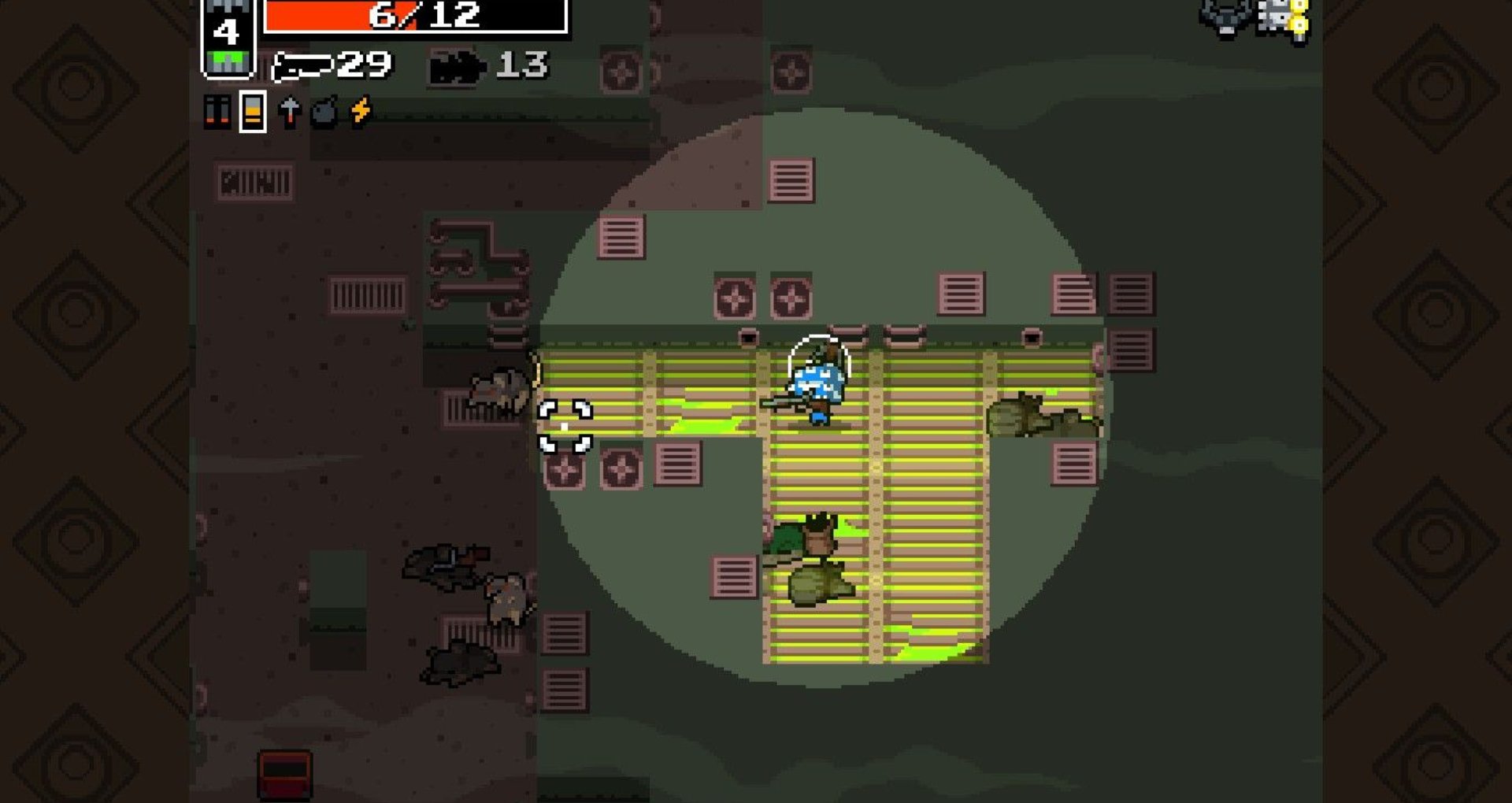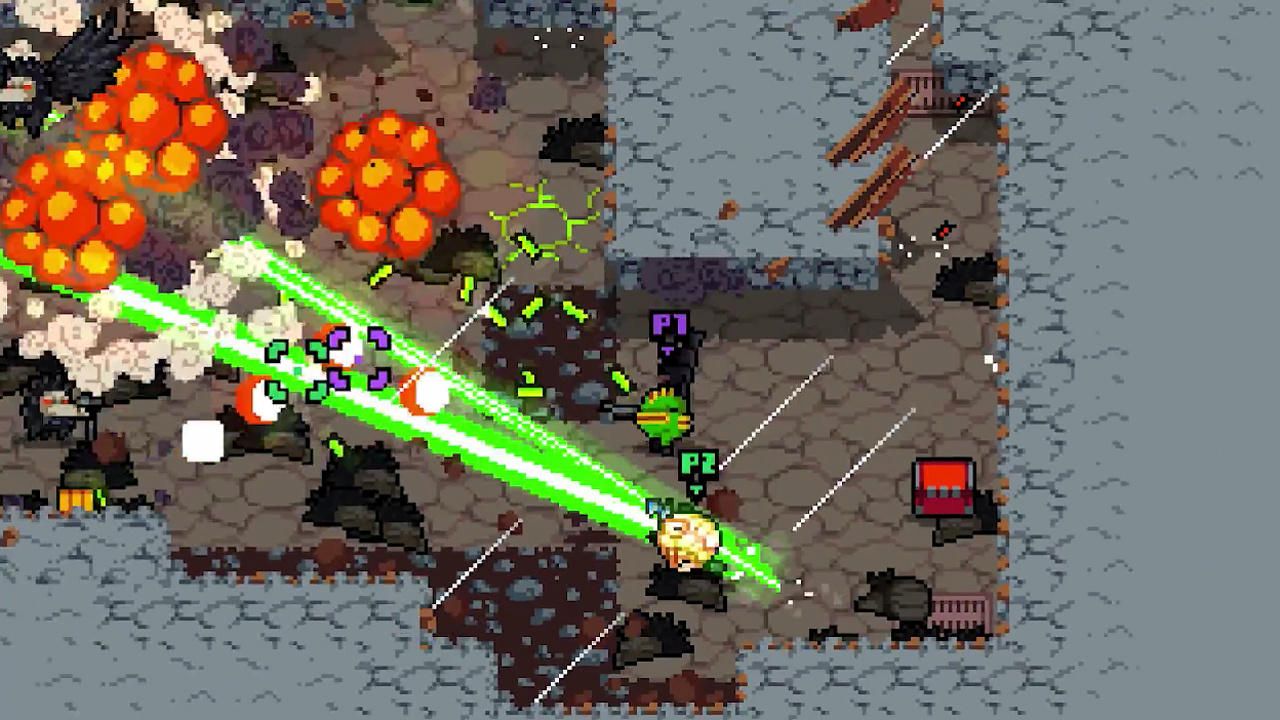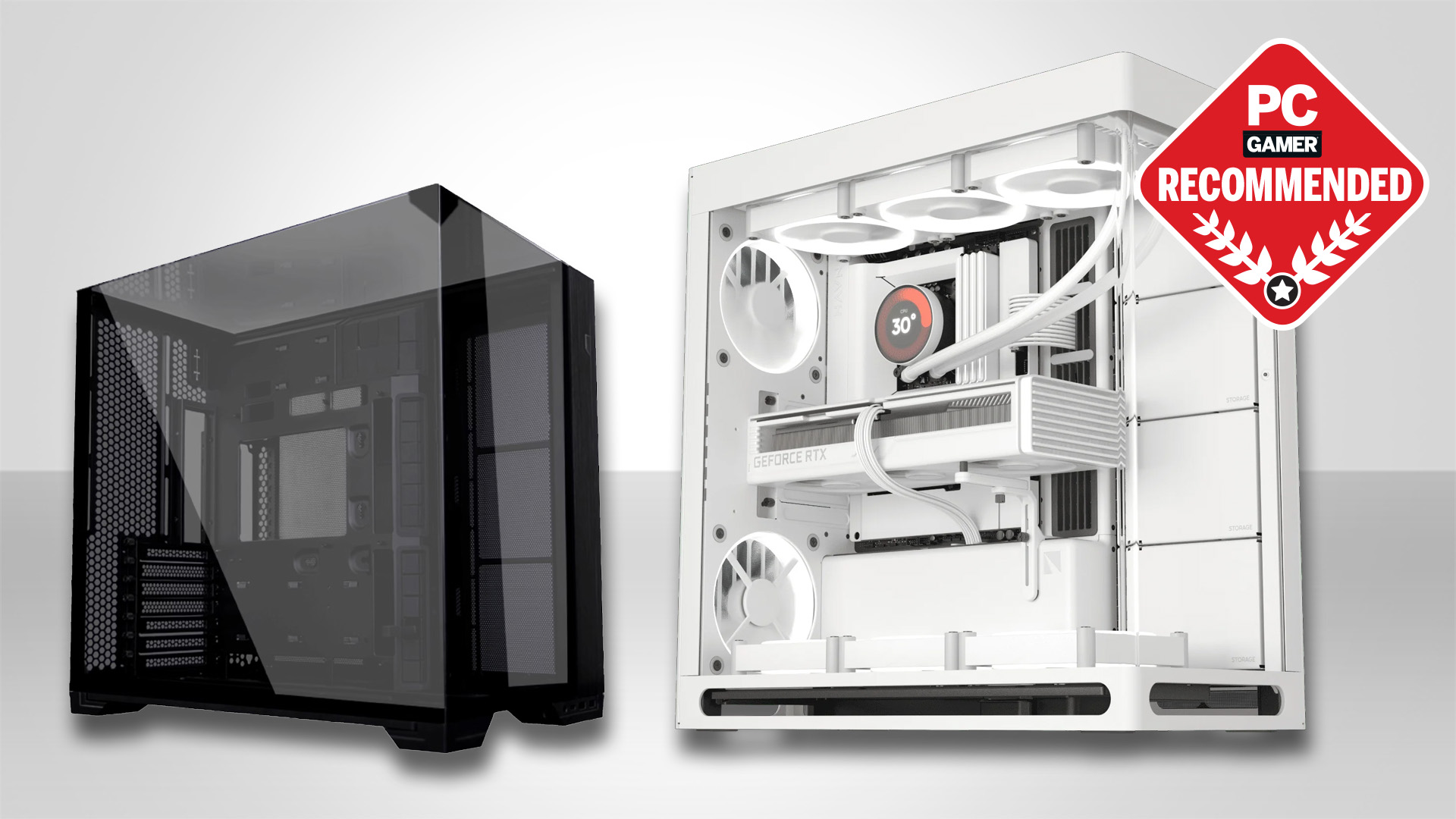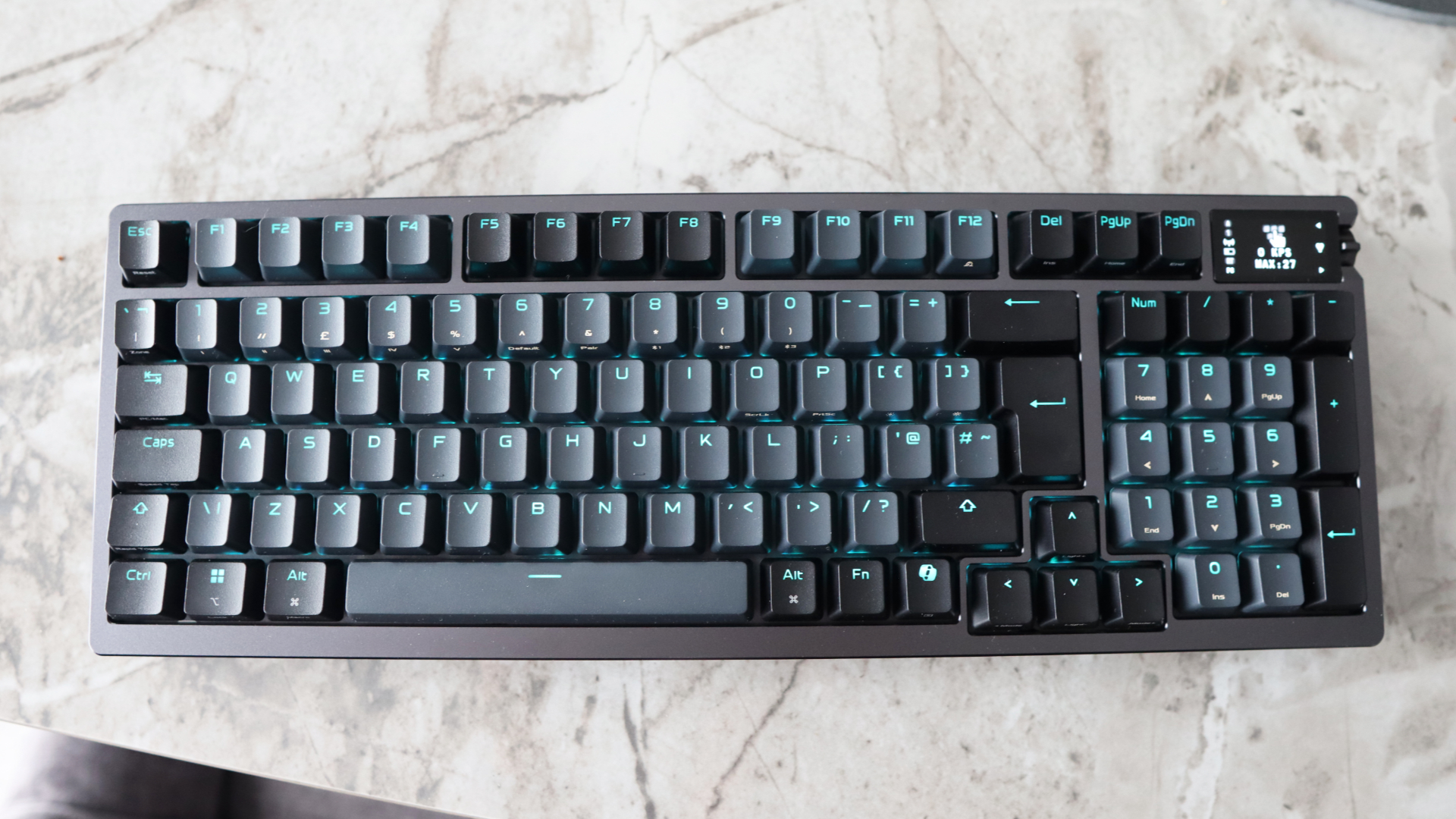Our Verdict
A crowning achievement for Vlambeer, and one of the finest action-roguelikes ever made.
PC Gamer's got your back
What is it: Lightning-fast top-down roguelike shooter in which squidgy mutants vie for possession of the eponymous throne.
Publisher: Vlambeer
Developer: Vlambeer
Reviewed on: i5, GTX460M, 4GB RAM
Expect to pay: $12 / £9
Multiplayer: 2 Player Co-op
Link: Official site
Nuclear Throne often resembles a foodfight in a particularly mucky branch of McDonalds, but don't let its showers of pixellated gristle deceive you. This is a precision-engineered post-apocalyptic roguelike shooter of insidious grace and flexibility, with every single moving part a source of terrible fascination. Take the Chicken, one of Nuclear Throne's unlockable characters. She doesn't collapse on death like the rest of the characters: head and body part company, instead, and you're granted a few seconds to guide her spurting torso towards a health pack and thus, a miraculous comeback. After a couple of runs, I've just realised that during these frantic searches, the camera stays centred on her lopped-off head—a subtle hindrance in a game full of wonderful little touches.
Your overall goal is to overcome 15 procedurally generated levels, broken into seven themed areas (plus a small clutch of secret levels, amongst other surprises). Between chapters you can pick mutations for your character, which range from the prosaic—increased maximum health, or faster movement—to esoteric mutations that suit more advanced tactics, such as being able to tunnel into walls for shelter. One dramatically increases the force with which enemy bodies are thrown by a fatal blow. This transforms a bullet-hell endeavour into a question of banking shots and pinball table multikills—a lucky thwack with a wrench might clear out an entire corridor, saving you precious ammo. It obviously encourages aggression, as does the fact that Rads (XP points) must be gathered before they blink out of existence—rinsing that corridor in one fell swoop might cost you an upgrade, if you can't mop up all the Rads in time. But rushing forward to claim the rewards isn't the wisest tactic in a world that's home to assassins posing as corpses, to say nothing of flying diamonds who spit lasers from outside the field of view.

Nuclear Throne's greatness lies in how all these variables and considerations pull against one another, giving rise to shifting layers of strategy, surprise and white-knuckle brinkmanship. For all its complex systems, though, the game is never less than intuitive, marrying responsive top-down shooting to a rocky yet predictable progression curve. The majestic audio design plays a big part in making the game accessible—that bombardment of yelps and splats is actually a nicely judged set of cues, allowing a halfway-skilled player to read a battle almost by ear alone.
Map layouts and item drops vary hugely, but as with all the best roguelikes, there's enough uniformity between playthroughs that you can plan ahead. Each area theme (ranging from slippery ice plateaus to scrapyards and bejewelled cave systems) spans a fixed number of levels, boss encounters crop up at the same point in the sequence every time, and each layout is home to a certain number of weapon and ammo crates. This leads to some delicious quandaries as you weigh the needs of the moment against those of scenarios to come. A mutation that allows normal movement through cobwebs might prove decisive in a chapter or two, but a mutation that occasionally restores ammo when you kill something has wider applicability. Likewise, should you waste those bazooka shots on a murder of Uzi-wielding crows, or save them for the boss you know is just around the corner?
Crystal starts with more health and can transform briefly into a bullet-repelling chunk of amethyst.
Choice of character also, of course, shapes the the challenges ahead—besides a primary and secondary weapon slot, each protagonist sports an active and a passive ability that caters to a particular playstyle. The coward's bet is Crystal, who starts with more health and can transform briefly into a bullet-repelling chunk of amethyst (a later mutation allows her to teleport while in this state). A riskier pick is Melting, who dies easily but reaps a greater Rad haul per kill, allowing him to access powerful upgrades much earlier—oh, and he can blow up corpses from afar. Same screen co-op play allows you to explore how these special abilities may compliment each other: an Eyes player might use telekinesis to suck in ammo drops, for instance, while a dual-wielding Steroids player vomits bullets into a chokepoint.
Given a certain degree of skill, the game can be completed in under an hour, but there are daily and weekly challenges with preset levels to dip into, and you can loop the campaign after beating a certain boss to replay levels with different mode criteria. Even without all that, though, Nuclear Throne is an experience you'll want to relive—for the inexhaustible joy of gliding through hails of ordinance, and for the many small discoveries you make every time you return to the wasteland. Roguelikes don't come much greasier or grubbier, but they're seldom this compelling, either.
Keep up to date with the most important stories and the best deals, as picked by the PC Gamer team.
A crowning achievement for Vlambeer, and one of the finest action-roguelikes ever made.


